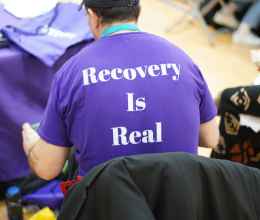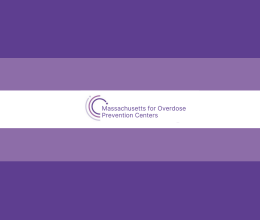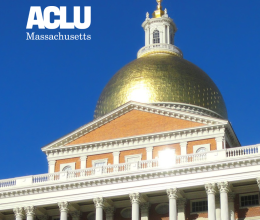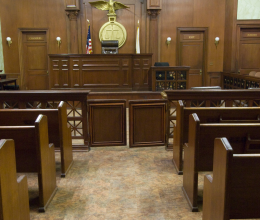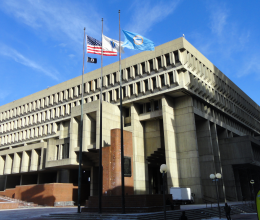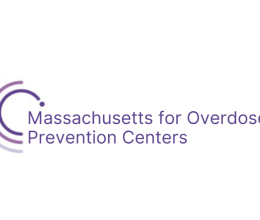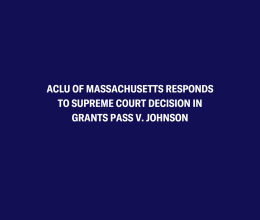
In a lawsuit to protect the constitutional rights and safety of people living at “Mass. and Cass,” Massachusetts Supreme Judicial Court Associate Justice Frank Gaziano today issued an order sending the lawsuit to the Superior Court for expedited review. Justice Gaziano’s order recognizes the “dire circumstances confronting the plaintiffs as a group,” calls for the Superior Court to issue findings of fact “forthwith,” and instructs the Superior Court to decide plaintiffs’ motion for emergency relief with “due regard for the emergency nature of these proceedings, and the almost daily actions being undertaken under the auspices of the executive order in the Mass and Cass area.”
“This order reflects the seriousness of this lawsuit, and the City should take it as a moment to pause its enforcement actions so that the Superior Court can consider these critical issues,” said Carol Rose, executive director of the ACLU of Massachusetts. “For the plaintiffs and others residing in the Mass. and Cass area, displacement does not simply mean losing shelter; indeed, it cuts off their access to the medications, services, and community that keep them alive. There is no need for the City of Boston to press forward with these harmful displacements until the law and viable alternative housing are firmly in place.”
The ACLU of Massachusetts and law firm WilmerHale filed the lawsuit last week, seeking to stop the City of Boston from continuing to drive people out of the Melnea Cass Boulevard and Massachusetts Avenue area without first identifying viable alternative housing options for them. The lawsuit, filed on behalf of three people experiencing homelessness, as well as a class of similarly situated people who are or were very recently residing at Mass. and Cass, follows recent large-scale evictions that have left people without even a tent to call home.
In spite of City officials’ suggestions that housing would be provided, the plaintiffs and others were driven out—under threat of arrest—with no viable housing options. Much of their personal property was summarily destroyed, leaving them without access to clothing and even vital papers such as their identification.
The City has repeatedly suggested that impacted people will be provided real shelter alternatives before being displaced. Yet, there is no process in place to evaluate people’s barriers to congregate shelters—including physical or mental disabilities, underlying medical issues that make people more vulnerable to serious COVID infection, harm reduction needs, and family or partner situations—and to identify current available options that address those barriers. This failure to adjust housing suggestions based on individual needs forces people out and leaves them with nowhere safe to sleep.
The ACLU recently joined medical providers, addiction specialists, and public health experts to call for a health-centered approach to the intersecting crises at Mass. and Cass. Such an approach includes expanding emergency non-congregate shelter options, increasing targeted voluntary treatment offerings, and protecting civil rights and human dignity in encampments.
For more information about Geddes v. City of Boston, go to: https://www.aclum.org/en/cases/geddes-et-al-v-city-of-boston
For more information about ACLU of Massachusetts, go to: https://www.aclum.org/
